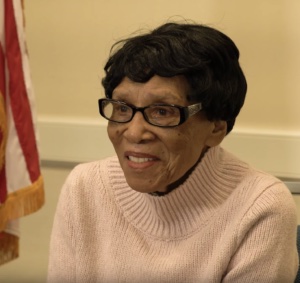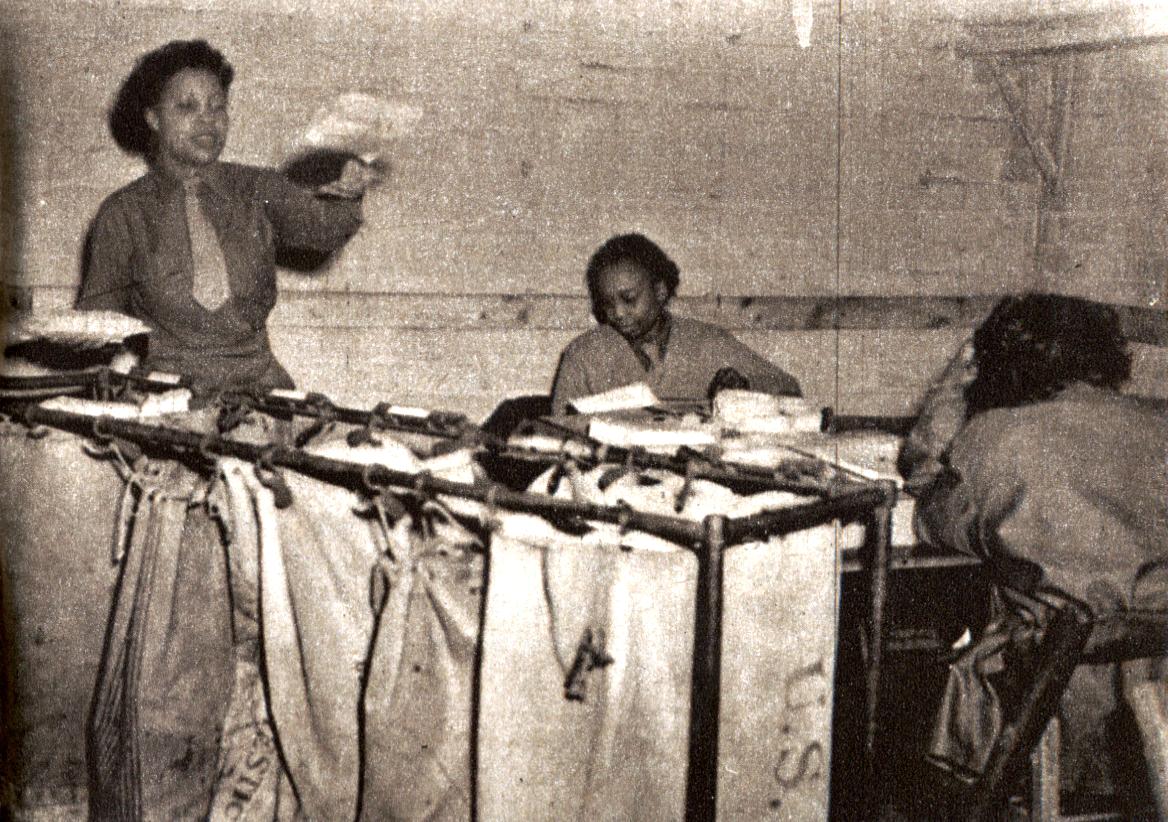As a member of the first and only Women’s Army Corps all-Black battalion that served overseas during World War II, Anna Mae Robertson, now 97, recalls the struggle just to simply serve.

“I remember all the jobs we did and the work we had to do to earn the jobs,” she told the Milwaukee Independent in 2019.
Enlisting in the Army at age 19 in 1943, Robertson trained at Fort Des Moines, Iowa, and Fort Oglethorpe, Georgia, before being shipped to England in February 1945 with the Women’s Army Corps 6888th Central Directory Postal Battalion.
Nicknamed “Six Triple Eight,” the women were tasked with sending a backlog of mail more than two years old to the seven million American GIs in Europe.
With the motto, “no mail, low morale” the battalion worked in 8-hour shifts, processing 65,000 pieces of mail per shift. Wading through the backlog was estimated to take 6 months — the women of Six Triple Eight completed their job in half that time.
“We worked in shifts around the clock. You had to find the right name and address,” Robertson told the Philly Tribune.
But tracking down homesick GIs, many of whom had been on the march since D-Day, proved difficult. “Some letters were simply addressed ‘Junior, U.S. Army,’ [and] rats and mice had gnawed into parcels packed with baked goods,” writes the Tribune.

Working in unheated buildings with blacked out windows due to ongoing German V-2 attacks, the women also worked, ate, and slept in segregated quarters.
“These are the stories that got stuck in the nooks and crannies of history. When people hear about this, their reaction is almost universally the same: ‘Wow, I didn’t know about that,’” said Jim Theres, a director who produced the 2019 documentary “The Six Triple Eight” about the all-Black battalion.
After arriving home in early 1946, the unit was quietly disbanded. It was not until 2014 with the intervention of U.S. Rep. Gwen Moore, D-Wis, did Robertson — one of seven surviving members — receive her service medals.
On November 20, 2018 a monument in Fort Leavenworth, Kansas was dedicated to the women of the Six Triple Eight.
For Robertson her service had a lasting impact, telling the American Veterans Center with a chuckle, “I was doing the best I could.”





